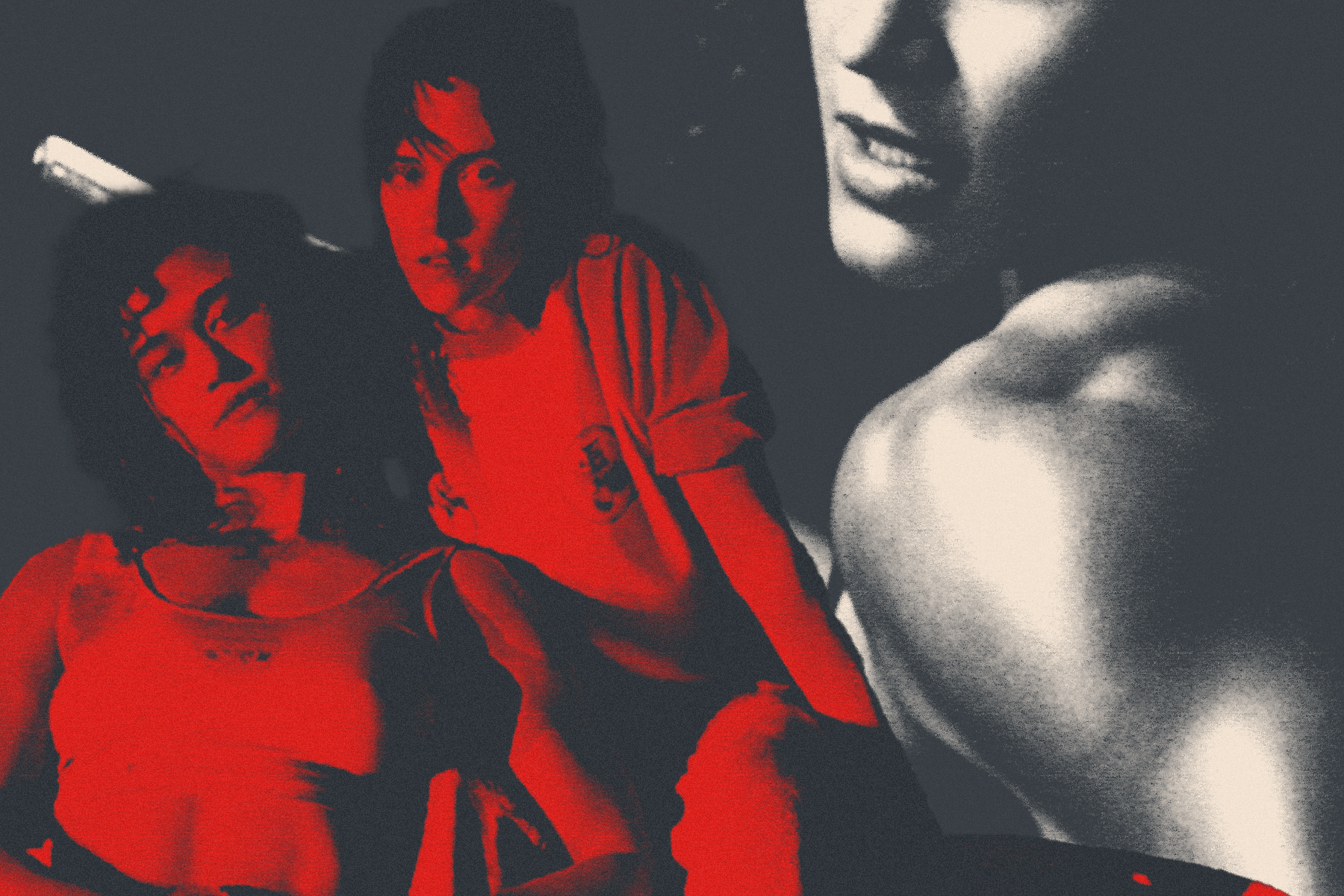Promotional materials for “Love Lies Bleeding” featuring Kristen Stewart subverts expectations with females embodying masculine arenas of the action movie, bodybuilding and the powerful sex symbol.
The act of subversion is pivotal to the upcoming A24 romantic thriller, “Love Lies Bleeding”. For writer-director Rose Glass, the project’s creation revolved around how to subvert audience expectations for a “strong woman”.
Kristen Stewart, star of the film and recent cover star for Rolling Stone, expressed skepticism towards this subversion,highlighting how much the media claims to “empower women”, despite rarely asking what makes women feel empowered. Without conversations with actual women, Stewart said the idea of the strong woman is worthless. In Glass’s film, a woman is not a “strong female character” because of her personality. Rather, Glass subverts expectations by showing strong women in the literal sense, through actress and martial artist Katy O’Brian’s portrayal of a female bodybuilder with muscles for days.
With women oozing the masculinity typically seen in male actors, these cinematic representations pose some questions: what does it mean to be masculine as a woman? Is it enough to replicate the imagery associated with men — the leather jackets, the guns, the muscles — or is it more complicated?
While O’Brian performs strength, Stewart performs an “in your face” masculine sexuality, through her Rolling Stone photoshoot and trailers for the upcoming film. The photoshoot shows Stewart in masculine outerwear such as leather jackets, and jockstraps and tank tops that highlight her toned stomach and legs. While males were regarded as powerful sex symbols during the height of Stewart’s “Twilight” popularity, promotional material for the film indicates masculine women are now flexing into the role.
Trailers for the film showcase women filling traditional masculine venues in cinema. The film is a romantic thriller with both women interacting with masculine expectations of the genre. Stewart operates a gun and slams on the gas during intense car sequences while O’Brian participates in bodybuilding competitions and gets her hands dirty both physically and literally in desperation for a job. While there’s a long history of women being objectified as sex symbols in Hollywood, this history is subverted by the full fleshing out of these characters. These women have complex relationships and desires aren’t limited by their sex appeal but rather exist in conjunction.
Although such portrayals aren’t prioritized in the mainstream, masculine women have a history of stepping into male roles from performing male jobs during times of war to impersonating men to gain access to careers in the military, political sphere, and arts. Masculine women who experienced same gender attraction found a home in the queer community which viewed their masculinity as desirable. Said women are commonly known as butches. The term gained popularity within the lesbian community, joining other commonly used terms for masculine women such as “bulldagger” and “husband”. Butch gained many associations through the years — working class, masculine, stone — but the lesbian community struggled with identifying what it meant to be “butch” or masculine as a woman in definitive terms. Was it an appearance, a swagger, who you brought to bed? Does it have to do with your interests and hobbies?
While women characters have taken on masculine interests and hobbies in past eras of cinema, the characters weren’t coded as masculine on screen.
Take action movies for example: women-led action projects from the 2000s such as the film “Elektra” (dir. Rob Bowman) featured female protagonists in masculine-esque stories, but these characters were still very feminine. The titular character Elektra partakes in learning martial arts, but instead of focusing on this newfound strength, the final poster for the film focuses on sexualizing actress Jennifer Garner. Part of Garner’s face is obscured through dramatic lighting but pouty red lips and flawless hair remain on display. Garner holds a weapon in her hand, which she uses in movie combat scenes, yet the poster’s tagline is “looks can kill” not acknowledging her skills as a fighter at all. From the movie’s advertisement to the male creative team of the film — consisting of Bowman’s directing and a unit of male writers — it’s clearly marketed to men.
By incorporating more females into creative teams. The 2017 film “Wonder Woman” utilized female director Patty Jenkins and the 2019 film “Captain Marvel” consisted of female writers and crew members. These movies deviated from typical sexualization, instead emphasizing strength through battle scenes. The storyline of “Captain Marvel” focuses on Brie Larsen’s Carol Danvers reclaiming her strength following brainwashing and Gal Gadot’s Diana (“Wonder Woman”) aids soldiers in World War I. The more feminine-presenting Diana is given a love interest, pilot Steve Trevor, but Danvers is more masculine and without any love interest. Danvers is shown instead to value her friendship with Maria Lambeau and Lambeau’s daughter, Monica. Her gender performance doesn’t play into romantic relationships or complicate power dynamics present to the extent of characters in “Love Lies Bleeding”.
For Lou (Stewart) and Jackie (O’Brian) of “Love Lies Bleeding”, masculinity is a performance that interacts with the characters’ sexualities and the power dynamics they find themselves in. Lou, a gym manager, presents masculinely through muscle tanks and choppy hair. Lou is intrigued by Jackie, an obvious component of her attraction being Jackie’s masculinity, blatantly checking her out when she lifts at the gym. When they’re alone, Lou doesn’t comment on Jackie’s long hair or pretty smile, but rather the “pretty serious lines” of Jackie’s abs. Jackie performs a playful masculinity for Lou, often flexing in front of her, and is referred to by one of Lou’s acquaintances as “that big girl.”
Jackie’s masculinity, while an attraction for Lou, ends up complicating their relationship when Jackie starts working for Lou’s father. Lou warned Jackie against it, but Jackie is desperate for a job. What started as something akin to a hot-girl-summer sapphic romance quickly devolves into criminal activity, resulting in dead bodies, and sends both characters spiraling to protect each other. Lou ends a phone call with her father, threatening to expose him to the FBI if he ever touches Jackie, a protective move of a stereotypically masculine manner.
She is visibly scared while making the threat over the phone, but powers through the performance, never dropping the conviction in her voice. While Lou’s masculinity is nuanced with the depictions of her fear, Jackie’s is never faltering and doesn’t show indications of fear despite events which would terrify the average person. For Jackie, her masculinity helps propel her towards a fight response, ready and willing to fight back against Lou’s father despite the clear danger he presents.
Going back to Stewart’s complaint with strong female characters, it is evident why this film is a subversion. The female characters in “Love Lies Bleeding” find power and strength in their masculinity and it is clear why it empowers them. Jackie’s muscles empower her both through bodybuilding and confidence. She isn’t afraid to get involved with Lou’s dad, despite Lou’s fears. Additionally, it isn’t any typical female beauty standards which makes Jackie attractive to Lou and the audience. Instead, it’s her muscles and her masculinity, something rarely highlighted as a desirable quality for women to possess in film. Lou, although physically weaker than Jackie, knows how to navigate her father’s world and utilizes this knowledge in her attempt to protect Jackie. If she can’t stop Jackie from entering her father’s operation, then she can at least protect her from the consequences.
This film presents masculine women as desirable in a media landscape oversaturated with femininity and male sex symbols. Women can be desired for their muscles instead of desire stemming from the framing of their pouty lips or perfect hair. “Love Lies Bleeding” may not come from a blockbuster studio, but the film is important for the representation it provides and its subversion of what it means to be a strong woman.
















